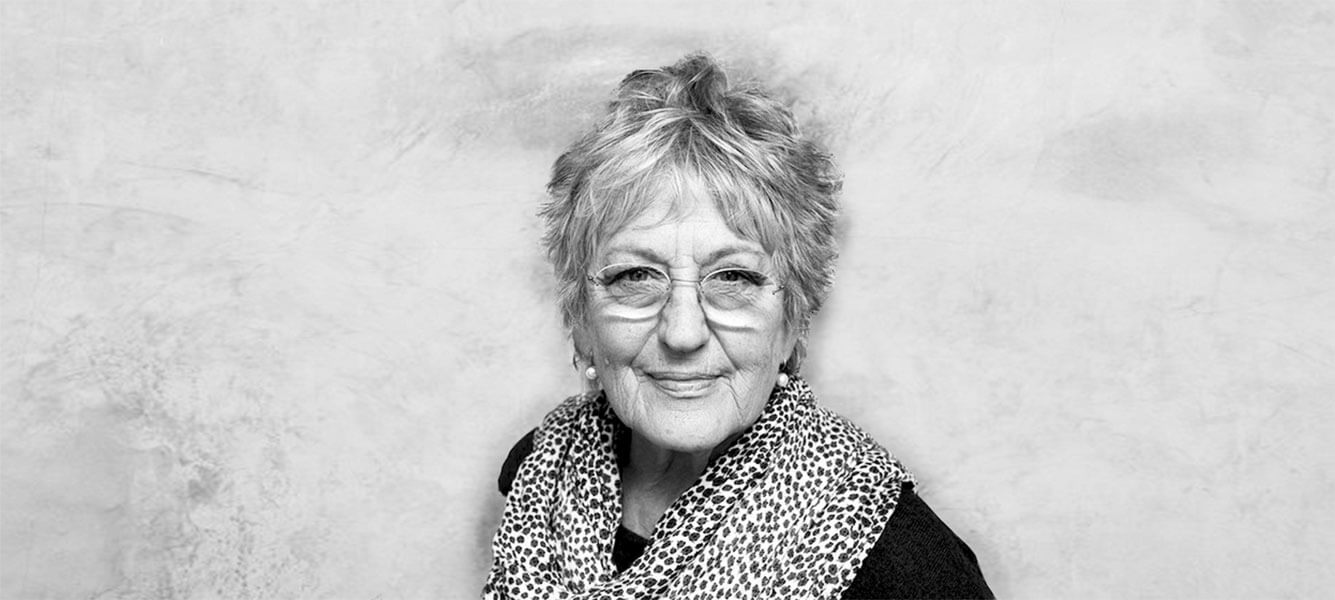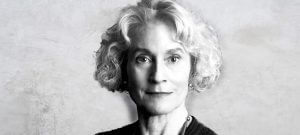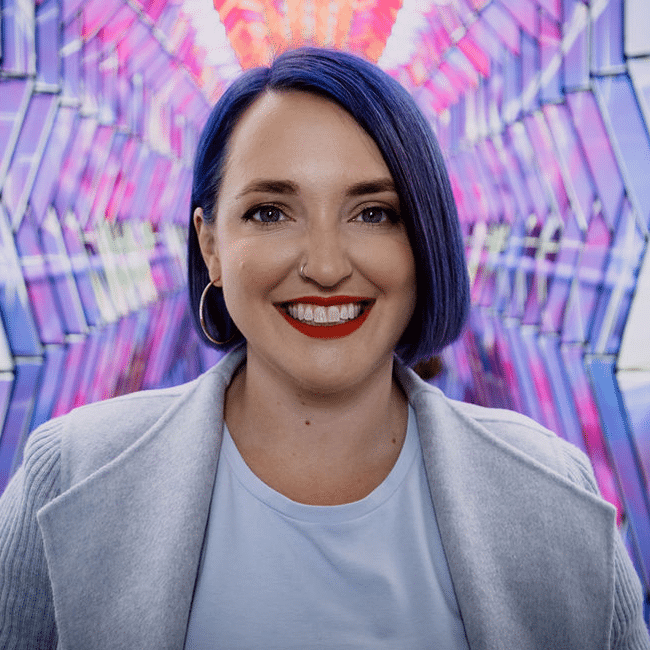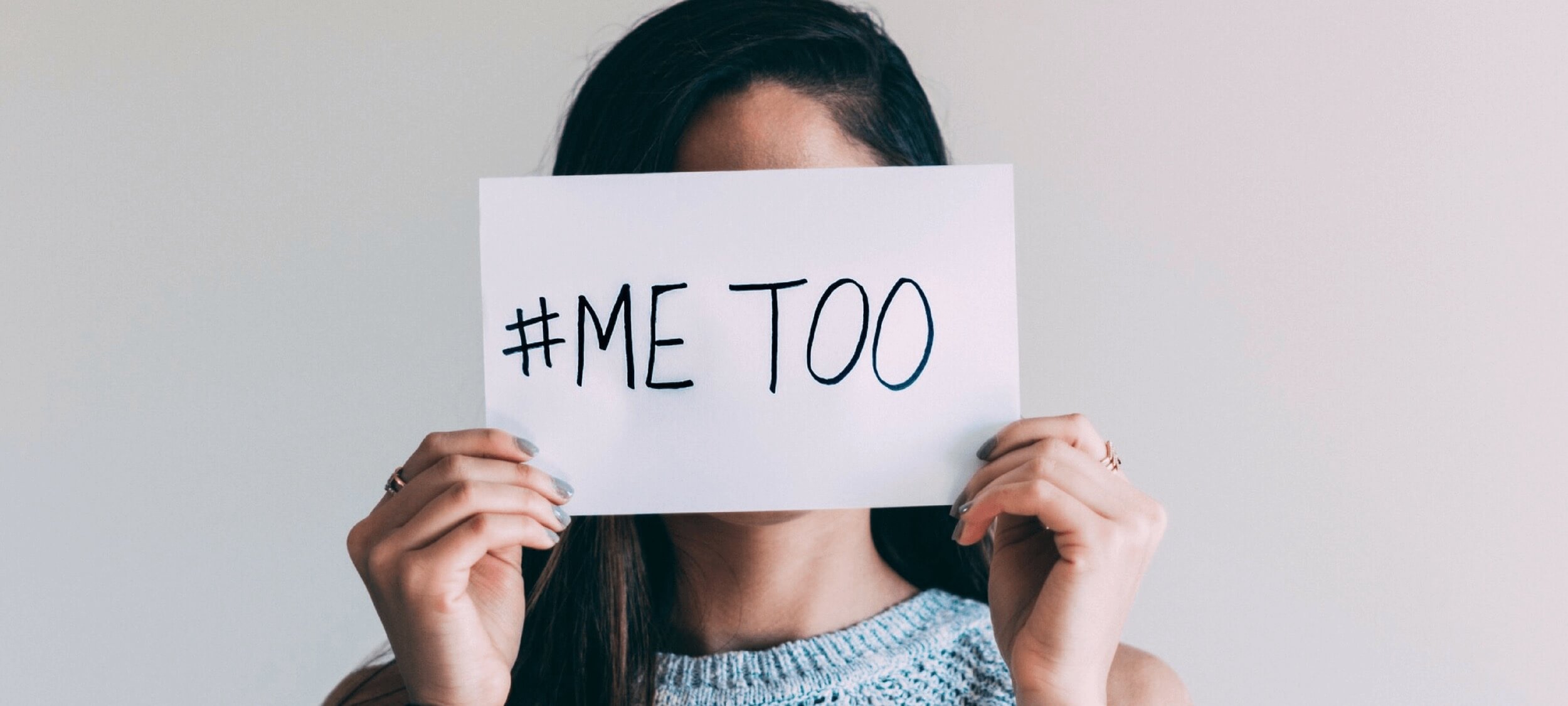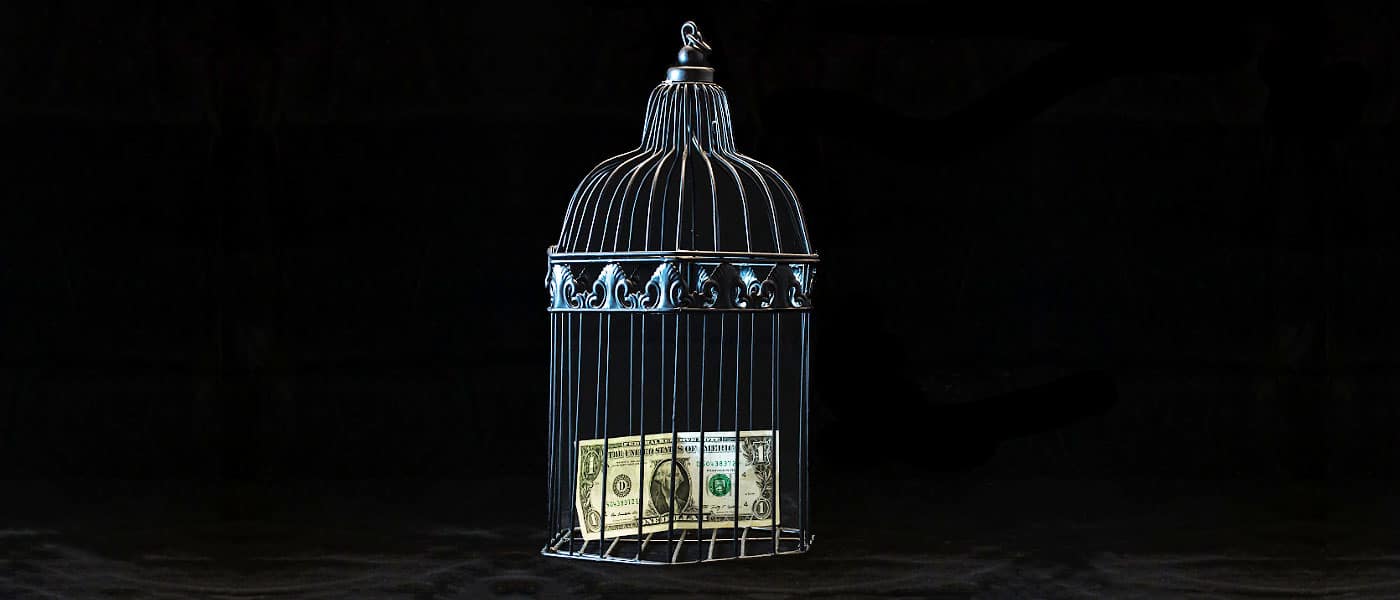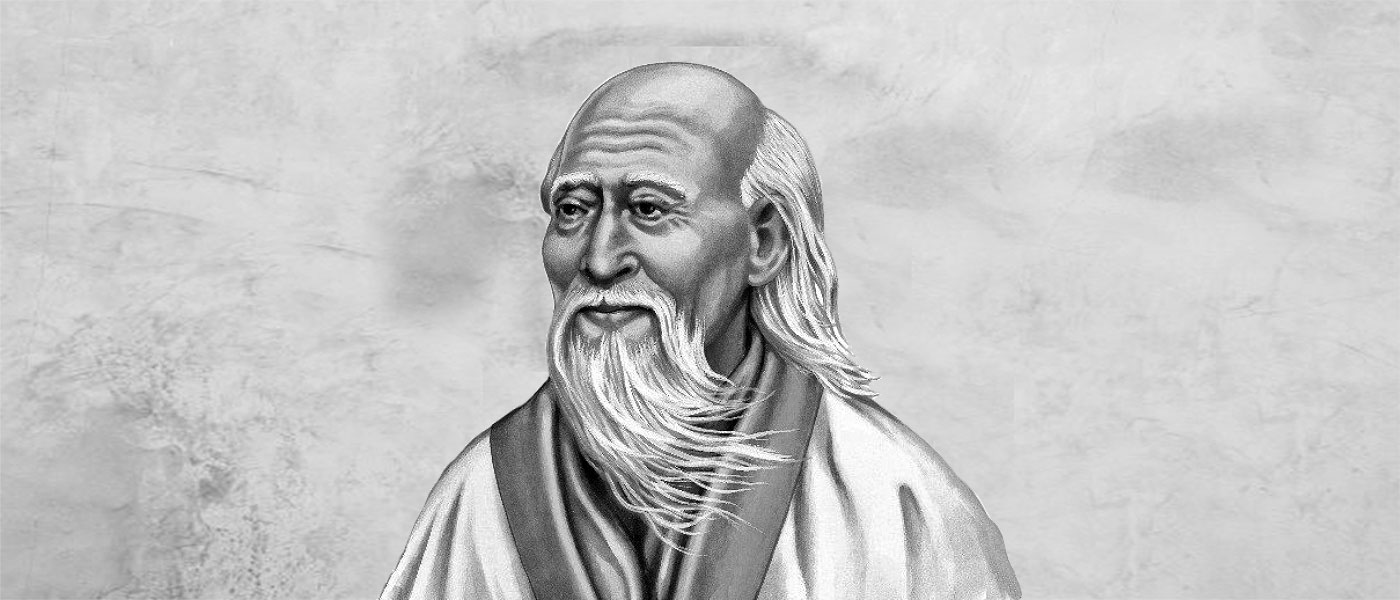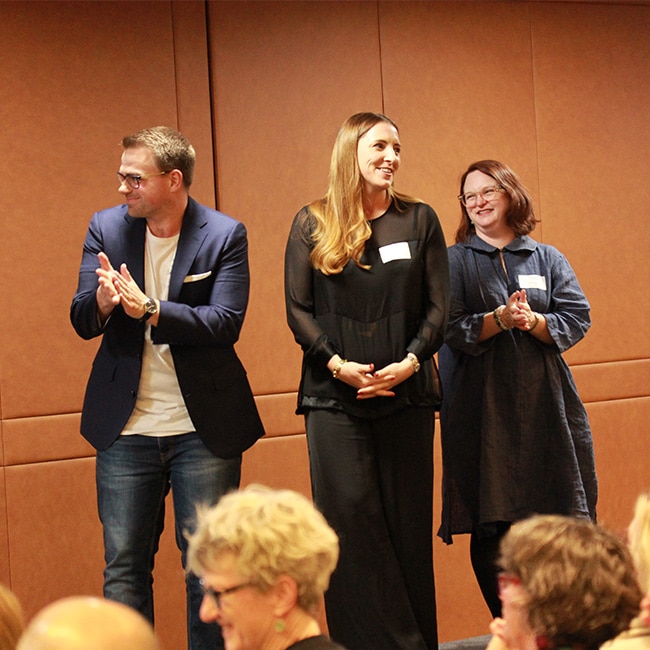The role of emotions in ethics according to six big thinkers

The role of emotions in ethics according to six big thinkers
Opinion + AnalysisRelationships
BY The Ethics Centre 16 APR 2021
It’s not easy to provide a clear definition of emotions. Philosophers and psychologists still haven’t agreed on what they are or whether they’re ethically important.
Most of us have lots of emotions and can name a dozen off the top of our heads pretty quickly. But there’s a lot more to understand. Why do they matter? Are we in control of our emotions? Should we prioritise our reason over our emotion?
Let’s take a look at what philosophy has to say.
Plato: reason rules emotion
For Ancient Greek philosopher Plato, emotion was a core part of our mind. But although it was core, he didn’t think emotions were very useful. He suggested we imagine our mind like a chariot with two horses. One horse is noble and cooperative, the other is wild and uncontrollable.
Plato thought the chariot rider was our reason and the two horses were different kinds of emotions. The noble horse represents our ‘moral emotions’ like righteous anger or empathy. The cranky horse represents more basic passions like rage, lust and hunger. Plato’s ideas set the precedent for Western philosophy in placing reason above and in control of our emotions.
Aristotle: what you feel says something about you
Aristotle had similar ideas and believed the wise, virtuous person would feel the right emotions at the right times. They would be depressed by sad things and angered by injustice. He also believed this appropriate kind of feeling was an important measure of whether you were a good person. He didn’t think you could separate the kind of person you were from the way you felt.
So if you find it funny when someone slips over in a puddle, Aristotle would argue that says something about you. It doesn’t matter whether you then offer them a towel or ask if they’re okay. The amusement you felt in response to their suffering reflects your character. He thought your job is to work hard so instead of laughing at such situations, you feel empathy and concern.
Hume: emotion rules reason
Scottish philosopher David Hume thought this view was naive. He famously said reason is “the slave of the passions”. By this he meant our emotions lead our reason – we never choose to do anything because reason tells us to. We do it because an emotion pushes us to act. For Hume, reason isn’t the charioteer driving our emotions, it’s more like the wagon being pulled along with no control over where it’s headed. It’s the horses – our emotions – calling the shots.
Hume and his friend Adam Smith developed a theory of moral sentiments that used emotion as the basis for their ethical theory. For them, we act virtuously not because our reason tells us it’s the right thing to do, but because doing the right thing feels good. We get a kind of ‘moral pleasure’ from acting well.
Kant: emotion strips our agency
Immanuel Kant thought this whole approach was entirely wrongheaded. He believed emotion had no place in our ethical thinking. For Kant, emotions were pathological – a disease on our thinking. Because we have no control over our emotions, Kant thought allowing them to govern our thinking and action made us ‘automated’, and that it is the only reason that made us autonomous and capable of making truly free decisions.
Freud: our unconscious drives us
More recent ideas have questioned whether there is such a thing as ‘pure reason’ (a concept Kant named one of his books after). Psychoanalysts like Sigmund Freud encouraged us to see our motivations as driven by unconscious urges and inclinations. More recent work in neuroscience has revealed the role unconscious bias and heuristics play in our beliefs, thinking and decisions.
This might make us wonder whether the idea that reason and emotion are two separate, rival forces is accurate. Another mode of thinking suggests our emotions are part of our reason. They express our judgements about how the world is and how we’d like it to be. Are we passive victims of our emotions? Do we spontaneously ‘explode’ with anger? Or is it something we choose? Our answer will help us determine how we feel about things like ‘crimes of passions’, impulsive decisions and how responsible we are for the feelings of other people.
Carol Gilligan: What is this sexist nonsense?
You may have noticed that all the names on this list so far are men. For psychologist Carol Gilligan, that’s not a coincidence. In her influential work In a Different Voice: Psychological Theory and Women’s Development, Gilligan argued that the widespread suspicion of ethical decisions made on the basis of emotion, concern for other people and a desire to maintain relationships was sexist. Most theorists had argued that reason, not emotion, should drive our decisions. Gilligan pointed out that most of the ‘bad’ ways of making decisions (like showing care for certain people or using emotion as a guide) tended to be the ways women reasoned about moral problems. Instead, she argued that a tendency to pay mind to emotions, value care and connection and prioritise relationships were different modes of moral reasoning; not suboptimal ones.
For a long time, reason and emotion have been pitted against one another. Today, we’re starting to understand that, in many ways, emotions and reason are the same. Our emotions are judgements about the world. Our reasoning is informed by our mood, our environment and a range of other factors. Perhaps the question shouldn’t be “should we listen to our emotions?” but instead “how do we develop the right emotional responses at the right time?” That way, we can rely on our emotions as one of many pieces of information we can use to make better decisions.
Follow The Ethics Centre on Twitter, Facebook, Instagram and LinkedIn.
Ethics in your inbox.
Get the latest inspiration, intelligence, events & more.
By signing up you agree to our privacy policy
You might be interested in…
Opinion + Analysis
Relationships
Power and the social network
Big thinker
Politics + Human Rights, Relationships
Big Thinker: Germaine Greer
Opinion + Analysis
Health + Wellbeing, Relationships
Ethics Explainer: Naturalistic Fallacy
Explainer
Relationships
Ethics Explainer: Virtue Ethics
BY The Ethics Centre
The Ethics Centre is a not-for-profit organisation developing innovative programs, services and experiences, designed to bring ethics to the centre of professional and personal life.
Big Thinker: Immanuel Kant

Immanuel Kant (1724—1804) was a transformative figure in modern Western philosophy due to his ground-breaking work in metaphysics and ethics.
He was one of the most influential philosophers of the 18th century, and his work in metaphysics and ethics have had a lasting impact to this day.
One of Kant’s greatest contributions to philosophy was his moral theory, deontology, which judges actions according to whether they adhere to a valid rule rather than the outcome of the action.
According to Kant’s theory, if you follow a valid moral rule, like “do not lie”, and it ends up with people getting harmed, then you’ve still done the right thing.
Deontology has since become one of the “big three” moral frameworks in the Western tradition, along with virtue ethics (based on Aristotle’s work) and consequentialism (exemplified by utilitarianism).
The will
Kant argued that morality cannot be based on our emotions or experience of the world, because this would leave it weak and subjective, and lacking the unconditional obligation that he believed was central to moral law.
“Every one must admit that a law has to carry with it absolute necessity if it is to be valid morally – valid, that is, as a ground of obligation,” he wrote.
His concern was that without this sense of unconditional obligation, a moral rule like ‘do not lie’ could compete with and be overridden by other concerns, like someone deciding they could lie because it suits their interests to do so, and they value their interests more than morality.
Rather, Kant argued that morality must be based on reason, which alone can provide the unconditional necessity that makes morality override our subjective interests.
Kant’s starting point was with our very nature, as inherently rational beings with ‘free will.’ He argued that it was this will that sets us apart as ’persons’ rather than ’things’ in the world, which are at the mercy of causal forces.
Our will gives us the ability to not only decide how to achieve our ends, but also about which ends to pursue; that’s just what freedom means. However, Kant argued that when we understand our nature as rational beings, we will understand that reason commands us to behave in a certain way, and this could form the basis of objective moral law.
The Categorical Imperative
Kant drew a famous distinction between different types of commands, or imperatives, which direct us how to act. One type are hypothetical imperatives.
So, one hypothetical imperative might say if you want to get to the 5:05 PM bus on time, then you must leave home no later than 5 p.m. Many moral systems of his time were effectively based on hypothetical imperatives, with the ends being things like achieving happiness or satisfying our interests.
However, Kant believed that such hypothetical imperatives could not be the basis of morality, as morality must bind us to act unconditionally and irrespective of any other ends we might have. Hence, someone who followed hypothetical imperatives in order to achieve ends like satisfying their desires or to avoid punishment was not acting morally.
He contrasted these with categorical imperatives do bind us unconditionally, no matter what other ends we might have. Kant argued that morality must be made up of categorical imperatives, as these are the only rules that can give morality its unconditional necessity.
“If duty is a concept which is to have meaning and real legislative authority for our actions, this can be expressed only in categorical imperatives and by no means in hypothetical ones,” he wrote.
The question becomes: where do categorical imperatives come from? Kant argued that there is really only one categorical imperative, and it is derived from our very nature as rational agents.
Once we abstract away all the contingent circumstances and subjective desires that people have, all we’re left with is our rational nature, which is something shared by all persons with a will. This objective point of view, stripped of all subjectivity, treats all rational agents equally, thus any imperative that directs them must apply universally.
From this Kant arrived at the categorical imperative, which is usually stated as “act only according to a maxim by which you can at the same time will that it shall become a general law”. This made all moral commands universal, so if something was wrong for me, then it must be wrong for all rational beings at all times.
This categorical imperative became the basis of all of Kant’s moral laws, effectively enshrining a particularly rarefied version of the Golden Rule.
Kingdom of Ends
Because we are inherently rational agents, we are both the authors and the subjects of the moral law. As such, Kant said that every person – indeed, every rational being – is an “end in himself, not merely as a means for arbitrary use by this or that will”.
This means we must treat all rational beings as ends in themselves and not just as means to achieve whatever ends we might have.
So, Kant argued, if every rational agent were to obey the categorical imperative, and treat everyone else as ends and not means, then it would lead to what he called the “kingdom of ends.”
It’s a kingdom in the sense that it’s a union of individuals who are all acting under a common law, and in this case the law is the categorical imperative, which urges everyone to treat everyone else as an end in themselves.
Kant admitted that this would be something of a moral utopia, but he put it forward as a vision for what a truly rational moral society might look like.
Controversy and Influence
Kant’s deontological ethics has been hugely influential but also controversial, being criticised by many philosophers as being based on an unrealistic conception of human rationality as well as being overly inflexible.
For example, Kant argued that it was always wrong to lie, because if one were to lie it would effectively endorse lying for everyone, and this would violate people’s rational autonomy.
However, we can imagine some situations where lying might be considered to be the right thing to do, such as lying to a prospective murderer in order to conceal their potential victims. Not to mention lying to one’s partner about their sartorial choices in order to maintain a harmonious domestic environment.
This is why many ethical consequentialists, who believe that it’s outcomes that really matter, have been known to gnash their teeth at the prospect that Kant demands we never lie.
Some thinkers have also – perhaps uncharitably – said that Kant effectively remade a kind of divine command theory of morality, which was popular in his Lutheran Christian community, except he replaced God with Reason (and even then, snuck a bit of God in on the side).
Kant’s philosophy has proven to be tremendously influential. His synthesis of empiricism and rationalism proved to be a breakthrough at the time, and his moral theory still has ardent defenders to this day.
Ethics in your inbox.
Get the latest inspiration, intelligence, events & more.
By signing up you agree to our privacy policy
You might be interested in…
Opinion + Analysis
Relationships
When identity is used as a weapon
Opinion + Analysis
Health + Wellbeing, Relationships
Should parents tell kids the truth about Santa?
Explainer
Relationships
Ethics Explainer: The Sunlight Test
Opinion + Analysis
Politics + Human Rights, Relationships
To Russia, without love: Are sanctions ethical?
BY The Ethics Centre
The Ethics Centre is a not-for-profit organisation developing innovative programs, services and experiences, designed to bring ethics to the centre of professional and personal life.
How avoiding shadow values can help change your organisational culture

How avoiding shadow values can help change your organisational culture
Opinion + AnalysisBusiness + Leadership
BY John Neil Michelle Bloom The Ethics Centre 15 MAR 2021
Governing culture is a board’s most challenging task. John Neil and Michelle Bloom of The Ethics Centre outline the dangers of “shadow values”. Here’s how to walk the talk.
This article was first published in the March 2021 edition of Company Director magazine for the Australian Institute of Company Directors.
While an organisation might be measured by its share price, profitability or reputation, it is defined by its culture. Culture matters because it influences everything an organisation does. It defines not only individual and team performance, it also influences how organisations manage, change and navigate complexity and uncertainty. While it is critical to an organisation’s performance and reputation, culture is notoriously difficult to identify, measure and evaluate. As a result, understanding and governing culture is a perennial challenge for boards. This is because it is comprised of implicit and explicit dimensions. It includes the shared values, principles and beliefs of people, how they work together and with each other. Many of these dimensions are visible, but many are not.
On the face of it, corporate values of excellence, respect, integrity and communication are admirable and worthy. Most organisations would be happy to identify with them. But Enron espoused these values only 12 months before declaring bankruptcy in 2001 — the largest in US history. The company had received plaudits for its 64-page code of ethics and Fortune magazine named it “America’s Most Innovative Company”. It had received numerous awards for its corporate citizenship and environmental policies.
Enron’s failings have been well documented as the prototypical case study of what can happen when an organisation decouples values from its behaviours. Less well-documented is how the implicit and unstated dimensions of an organisation’s culture shape and influence for better or worse. These aspects of culture determine what and how things get done in organisations and are driven by the implicit values/principles people hold.
“The biggest challenge for boards in governing culture is that while unspoken dimensions are difficult, but not impossible, to identify and measure, they are more powerful than the official ones because they operate below the surface.” – John Neil, The Ethics Centre
The dark side
The biggest challenge for boards in governing culture is that while unspoken dimensions are difficult, but not impossible, to identify and measure, they are more powerful than official ones because they operate below the surface. They are key to changing an organisation’s culture because they more closely reflect its actual operating culture — its “shadow” values and principles. In psychology, the alter ego is the dark side of human nature. Jung identified it as the “shadow” to describe the subterranean aspects of the psyche; those unpleasant traits we prefer to hide. As in the psyche, the shadow gains its power in an organisation by being repressed and unacknowledged, which manifests in unintended, often detrimental behaviours.
Shadow values are typically cultivated in environments where organisations are stressed by the complexity of changes occurring or a lack of focus on supporting cultural alignment with existing values and principles.
In our work with a financial services company, our evaluation revealed each of its official organisational values had powerful corollaries (shadow values) that served to shift the organisation off course significantly. One of these official values was excellence. While officially expressed in a tagline, it was experienced and evaluated in ways such as “having pride in our work”, “being willing to challenge”, and “continuous improvement”. We also found it manifested itself through a powerful shadow side driven by the unstated value of success — in behaviours such as “individualistic”, “maintain status”, and “hit targets at all cost”.
The key driver of this shadow value was an unwavering focus on “the numbers”. While the measurement of inputs, and outcomes was regarded as a management responsibility, in this individualistically success-oriented culture, hard metrics such as hitting the numbers came to serve as the sole measure of success. Individual behaviours became distorted in pursuit of that goal alone, obscuring non-financial costs and risks, which, when not easily calculable are not seen, let alone prioritised. Unintended consequences of not being aware of or managing shadow values were highlighted in the Banking Royal Commission.
Alternate shadows
The connotations of “shadow” overstate the negative effect of these values. While an organisation’s shadow values at their worst are less constructive mutations of the official ones and will always benefit from being exposed and dealt with, there are two other types, both potentially of great value for an organisation to identify and unlock.
The first is neutral in relation to the existing values/principles but offers significant potential for tipping into positive or negative manifestations. In our work with the Australian Olympic Committee (AOC), its value of excellence — with associated behaviours and traits of exemplary performance and achievement by elite Olympic athletes — was undermined by a powerful shadow cast by the implicit value of pragmatism.
The second type of alternate shadow values reinforce, amplify or supplement official values and principles. These were also present at the AOC (see breakout, right).
In our work with a large superannuation fund, a primary shadow value was that of harmony, operating below the stated value of excellence. The value of excellence was commonly expressed in behaviours such as “keeping costs low”, “continuous improvement” and “leading the industry”. The shadow value of harmony in its most positive expression meant people were respected and included. At its worst, it manifested in the avoidance of conflict, resulting in over-consultation, delaying and avoiding difficult decisions. As a result, excellence was hamstrung by a lack of agility and responsiveness to the changing environment and competitive pressures, with innovative ideas often deferred until unreasonably high standards of mitigation were in place.
Getting below the surface
Particularly for boards wanting a “true read” of a culture, a challenge is getting below the surface-level reporting facade. Because of its intangible nature, culture is not easily distilled into standard metrics. Complaints, grievance resolution time, staff turnover and engagement surveys provide a limited view of the dynamics underpinning the culture — but often, they are the board’s only sources of information. While they may identify a range of proxies for an explicit culture, they are of little use in identifying implicit beliefs, attitudes and behaviours that actually drive the operating culture.
A significant limitation is a reliance on self-reporting. One organisation we worked with displayed a widespread cultural practice in staff surveys and performance reviews. “Click five to stay alive” referred to the five-point Likert scales used to evaluate a leader’s performance — and to an expectation for subordinates to rate leaders as a “five” across all evaluation criteria to avoid recriminations. Not only did these reports give an inaccurate evaluation of performance, they also underlined a range of potential shadow values linked to inappropriate use of positional power, fear of reprisals and lack of trust.
Unless board members are particularly proactive through direct engagement with staff, having visibility of the actual operating culture beyond what management reports provide is difficult. While there is no substitute for direct engagement — in particular with how the executive team works — using tools that better uncover shadow values can help boards better see the risks and opportunities below the surface — and thereby govern more effectively.
John Neil is Director of Innovation and Michelle Bloom Director of Consulting and Leadership at The Ethics Centre. They offer Shadow Value Assessments, working directly with organisations to identify and remedy the alignment gap between the official values and the lived culture and behaviours. Find out more.
Case study: Australian Olympic Committee
Pragmatism was held in high regard as a leadership trait in the AOC. This infiltrated into ways of working and modes of governance. When the organisation shifted into “games mode” where pressures on effective delivery were intense, pragmatism exercised its greatest influence. At times, the ends justified the means, with governance standards, and operating processes temporarily suspended to expedite results. But organisational challenges compounded over time. When the AOC switched back into “non-delivery mode”, it was difficult to recalibrate around its official values, principles and sanctioned ways of working.
In our work with the AOC, we also found shadow values that reinforced the official values. There was a consistently understood and practically used principle of “athletes first”, which reinforced and amplified each of the official values, in particular that of excellence. While not recognised as an official value or principle, it influenced many desirable behaviours, judgements and decisions directly in service of the needs of athletes. In other organisations it may have been expressed as an official value of “service” or a principle such as “act in the client’s best interest”. But as a shadow principle, it was no less effective than these stated principles. It was commonly applied as a rule of thumb to many decisions made throughout the organisation — and most people defaulted to it.
Seven Female Philosophers You Should Know About

Seven Female Philosophers You Should Know About
Big thinkerRelationships
BY The Ethics Centre 8 MAR 2021
There’s no question that philosophy is littered with the workings of male minds. What’s less known are the many brilliant women whose contributions throughout history have shaped our world today. Here are seven female philosophers to celebrate this International Women’s Day.

Mary Wollstonecraft
Mary Wollstonecraft (1759-1797) was a writer, philosopher and social activist. Wollstonecraft’s manifesto is 225+ years old, but far from obsolete. She passionately articulated for women to have equal rights to men in A Vindication of the Rights of Woman in 1792, a century before the term feminism was coined. In a social system where women were “kept in ignorance” by the socioeconomic necessity of marriage and a lack of formal education, Wollstonecraft advocated for a free national schooling system where girls and boys would be taught together. The word patriarchy was not available to Wollstonecraft, yet she argued men were invested in maintaining a society where they held power and excluded women.
“My own sex, I hope, will excuse me, if I treat them like rational creatures, instead of flattering their fascinating graces, and viewing them as if they were in a state of perpetual childhood, unable to stand alone.”
bell hooks
An outspoken professor, author, activist and cultural critic, bell hooks (1952 – 2021) work explores the connections between race, gender, and class. “Ain’t I A Woman” laid the groundwork for hooks progressive feminist theory, linking historical evidence of the sexism endured by black female slaves to its long-standing legacy on black women today. Born Gloria Watkins, hooks adopted her pen name after her late grandmother, wanting it written in lower case to shift the attention from her identity to her ideas. Now 38 years on from its original publication, her work remains radically relevant to the world today.
“A devaluation of black womanhood occurred as a result of the sexual exploitation of black women during slavery that has not altered in the course of hundreds of years.”
Simone De Beauvoir
Simone de Beauvoir (1908-1986) was a French author, feminist and existential philosopher. She lived an unconventional life as a working experiment of her ideas. As an existentialist, de Beauvoir believed in living authentically and argued that people must choose for themselves who they want to be and how they want to live. The more pressure society – and other people – place on you, the harder it is to make that authentic choice, particularly for women. In her best-known work, ‘The Second Sex’ she famously posed that women are not born, they are made. Meaning that there is no essential definition of womanhood, rather social norms work hard to force them into a notion of femininity
“Man is defined as a human being and woman as a female – whenever she behaves as a human being she is said to imitate the male.”

Shulamith Firestone
Shulamith Firestone (1945-2012) was a writer, artist, and feminist whose book, The Dialectic of Sex, argued the structure of the biological family was primarily to blame for the oppression of women. Firestone proposed that over the course of human history, society itself had come to mirror the structure of the biological family and was the source from which all other inequalities developed. With a radical and uncompromising vision, she advocated for the development of reproductive technologies that would free women from the responsibilities of childrearing, dismantle the hierarchy of family life and set the foundations for a truly egalitarian society.
“the end goal of feminist revolution must be… not just the elimination of male privilege, but of the sex distinction itself.”
Hannah Arendt
Johannah “Hannah” Arendt (1906 – 1975) was a German Jewish political philosopher who left life under the Nazi regime for nearby European countries before settling in the United States. Informed by the two world wars she lived through, her reflections on totalitarianism, evil, and labour have been influential for decades. Arendt’s most well-known idea is “the banality of evil”, explored in 1963 in a piece for The New Yorker that covered the trial of a Nazi bureaucrat, Adolf Eichmann. Following the election of Donald Trump, sales of Arendt’s book The Origins of Totalitarianism, already one of the most important works of the 20th century, increased by 1600%.
“The sad truth is that most evil is done by people who never make up their minds to be good or evil.”
Martha Nussbaum
Martha Nussbaum (1947-present) is one of the world’s most influential living moral philosophers, trailblazing in her philosophical advocacy for religious tolerance, feminism and the merits of emotions. Nussbaum believes the ethical life is about vulnerability and embracing uncertainty. She famously argued for the place of emotions within politics, saying democracy simply doesn’t work without love and compassion. In ‘Not for Profit: Why Democracy Needs the Humanities’ Nussbaum took on the education system, proposing that its role is not to produce an economically productive and useful citizen, but people who are imaginative, emotionally intelligent and compassionate.
“To be a good human being is to have a kind of openness to the world, an ability to trust uncertain things beyond your own control.”

Simone Weil
Simone Weil (1909–1943) was a Philosopher, Christian mystic and political activist in the French Resistance, who TS Eliot called a “genius akin to that of the saints”. Weil gave attention to working conditions and is known to have given up a life of privileged to work in factories. This experience shaped her writings, which consider the relationship between individual and state, the nature of knowledge, the spiritual shortcomings of industrialism and suffering as key to the human condition. In The Need for Roots, Weil argued that society suffered an ‘uprootedness’, a deep malaise in the human condition due to a lack of connectedness to past, land, community and spirituality.
“To be rooted is perhaps the most important and least recognized need of the human soul.”
Ethics in your inbox.
Get the latest inspiration, intelligence, events & more.
By signing up you agree to our privacy policy
You might be interested in…
WATCH
Relationships
What is ethics?
Explainer
Relationships
Ethics explainer: Cultural Pluralism
Explainer
Relationships
Ethics Explainer: Begging the question
Big thinker
Relationships
Big Thinker: Kate Manne
BY The Ethics Centre
The Ethics Centre is a not-for-profit organisation developing innovative programs, services and experiences, designed to bring ethics to the centre of professional and personal life.
Tim Soutphommasane on free speech, nationalism and civil society

Tim Soutphommasane on free speech, nationalism and civil society
Opinion + AnalysisBusiness + LeadershipPolitics + Human RightsRelationships
BY The Ethics Centre 18 FEB 2021
We believe conversations matter. So when we had the opportunity to chat with Tim Soutphommasane we leapt at the chance to explore his ideas of a civil society. Tim is an academic, political theorist and human rights activist. A former public servant, he was Australia’s Race Discrimination Commissioner at the Australian Human Rights Commission from 2013 – 2018 and has been a guest speaker at the Festival of Dangerous Ideas. Now a professor at Sydney University, he shared with The Ethics Centre his thoughts on the role of the media, free speech, racism and national values.
What role should the media play in supporting a civil society?
The media is one place where our common life as a society comes into being. It helps project to us our common identity and traditions. But ideally media should permit multiple voices, rather than amplify only the voices of the powerful. When it is dominated by certain interests, it can destroy rather than empower civil society.
How should a civil society reckon with the historical injustices it benefits from today?
A mature society should be able to make sense of history, without resorting to distortion. Yet all societies are built on myths and traditions, so it’s not easy to achieve a reckoning with historical injustice. But, ultimately, a mature society should be able to take pride in its achievements and be critical of its failings – all while understanding it may be the beneficiary of past misdeeds, and that it may need to make amends in some way.
Should a civil society protect some level of intolerance or bigotry?
It’s important that society has the freedom to debate ideas, and to challenge received wisdom. But no freedom is ever absolute. We should be able to hold bigotry and intolerance to account when it does harm, including when it harms the ability of fellow citizens to exercise their individual freedoms.
What do you think we can do to prevent society from becoming a ‘tyranny of the majority’?
We need to ensure that we have more diverse voices represented in our institutions – whether it’s politics, government, business or media.
What is the right balance between free speech and censorship in a civil society?
Rights will always need to be balanced. We should be careful, though, to distinguish between censorship and holding others to account for harm. Too often, when people call out harmful speech, it can quickly be labelled censorship. In a society that values freedom, we naturally have an instinctive aversion to censorship.
How can a society support more constructive disagreement?
Through practice. We get better at everything through practice. Today, though, we seem to have less space or time to have constructive or civil disagreements.
What is one value you consider to be an ‘Australian value’?
Equality, or egalitarianism. As with any value, it’s contested. But it continues to resonate with many Australians.
Do you believe there’s a ‘grand narrative’ that Australians share?
I think a national identity and culture helps to provide meaning to civic values. What democracy means in Australia, for instance, will be different to what it means in Germany or the United States. There are nuances that bear the imprint of history. At the same time, a national identity and culture will never be frozen in time and will itself be the subject of contest.
And finally, what’s the one thing you’d encourage everyone to commit to in 2021?
Talk to strangers more.
To read more from Tim on civil society, check out his latest article here.
Tim Soutphommasane is a political theorist and Professor in the School of Social and Political Sciences, The University of Sydney, where he is also Director, Culture Strategy. From 2013 to 2018 he was Race Discrimination Commissioner at the Australian Human Rights Commission. He is the author of five books, including The Virtuous Citizen (2012) and most recently, On Hate (2019).
This project is supported by the Copyright Agency’s Cultural Fund.
Ethics in your inbox.
Get the latest inspiration, intelligence, events & more.
By signing up you agree to our privacy policy
You might be interested in…
Opinion + Analysis
Business + Leadership, Science + Technology
Meet Aubrey Blanche: Shaping the future of responsible leadership
Explainer
Relationships
Ethics Explainer: Ethical judgement and moral intuition
Explainer
Relationships
Ethics Explainer: The Sunlight Test
Opinion + Analysis
Politics + Human Rights, Relationships
Calling out for justice
Join our newsletter
BY The Ethics Centre
The Ethics Centre is a not-for-profit organisation developing innovative programs, services and experiences, designed to bring ethics to the centre of professional and personal life.
Ethics Explainer: The Other

It’s sometimes said that if we were to find ourselves alone, stranded on a desert island, there’d be no need for us to think about ethics. It’s probably not true, strictly speaking, but it’s a useful way of demonstrating that an enormous amount of the work of ethics lies in puzzling out how we should make our way in a world jam-packed full of other people, all of whom are owed the same kind of respect we are.
As we become preoccupied with the busy, everydayness of our lives, we can often take the people around us for granted. In some cases, this mean we fail to be polite to them, or be grateful for the things they do to help us. In more extreme cases, we can objectify or commodify the people around us – treating them as though they were just tools for our own purposes, rather than people with rights and goals of their own. This runs against the moral imperative advocated by German philosopher Immanuel Kant to never treat people as a mere means to our own ends.
A common solution to this moral problem is to try to remind people of our ‘shared humanity’. We are advised to show empathy, imagine how other people might experience our words and actions and put ourselves in other people’s shoes. These strategies all boil down to one basic belief: if we can just realise how similar we are to the people around us, we’ll stop treating them poorly. For example, the Scottish philosopher David Hume believed sympathy was the foundation of ethics.
However, we should ask seriously how accessible other people’s minds are to us. Can a middle-aged white man really put himself in the shoes of a Rohingan woman being persecuted because of her faith, responsible for three children, none of whom have eaten in days? Perhaps not, and so it’s a problem if we argue that our moral concern needs to be grounded in a recognition of what we have in common. Because sometimes, we have nothing in common.
The Other is a term used to capture the ways other people are different from us. It’s also used to describe the people who we keep distant from us because we decide they’re not like us. The process of Othering occurs when we turn fellow humans into abstract entities we can distance ourselves from or treat as less-than-human.
We often think of our social relationships in terms of groups – we have an ‘in group’ and an ‘out group’. These groups are distinguished by who we identify ourselves with and who we identify ourselves against. Othering happens when we treat the members of the out group – the people we don’t identify with – as though they were less important than the members of our in group.
Philosopher Simone de Beauvoir thought “Otherness is a basic category of human thought”. As soon as we think about what something is, we think about the opposite – the Other. However, natural or not, Othering isn’t a neutral process – it tends to lead to the mistreatment of the people we decide are Other.
Once we identify the Other it becomes easier to justify treating them in ways we wouldn’t treat a fellow person. We can abuse, exploit or persecute them without feeling guilty. Othering was a factor in enabling the Holocaust, the slave trade and the Rwandan genocide. In each case, the victims’ humanity became invisible because people focussed on what made them different.
Given this, it would seem like the solution to Othering would be, as David Hume suggests, to focus on what we have in common rather than what sets us apart. But this isn’t a perfect solution either, because the process of distinguishing who we are from who we’re not is part of the way we develop our identity.
By focussing only on what is similar between us and other people, we lose an important tool in discovering our personal identity. Oftentimes it’s our differences that make us unique.
When we look at people as being ‘like us’, it can help us to relate but it can also be a little bit narcissistic. Instead of looking on the Other as someone unique, complicated and different, we treat them like a mirror. We try to find ourselves in other people instead of trying to find what defines them as them.
The philosopher Emmanuel Levinas thought process of engaging with the Other and acknowledging the differences between us and them was the basis of ethics. All our theories, concepts and ideas about what to do and how to live start by acknowledging that we must engage with other people who are different from us. Levinas believed that this otherness – which he called alterity – was something to celebrate. Rather than looking for commonality to ground our moral concern, we should recognise that another person is a universe of mystery to us. Something to fill us with awe, care and concern.
Encountering the Other is difficult. The Other challenges our way of doing things, demands our attention and holds us responsible for our actions. Their presence forces us to rethink our understanding of the way the world works. It’s much easier to overlook that difference by looking for similarities or make those differences seem evil than it is to genuinely engage with them. Yet this is exactly what Levinas wanted us to do.
In fact, Levinas wanted us to look the Other in the face. In doing so, we look upon the face of someone completely different from us. We also start to recognise our ethical responsibility toward them, which is a really simply one: don’t kill them.
Think of all the films and stories where someone is about to commit an act of murder until at the last minute they see the eyes of the person they’re going to kill. Suddenly, they can’t do it. One explanation for these changes of heart is that in looking into the Other’s face, these people realise their ethical responsibilities.
This philosophy of the Other is powerful because it encourages us to rethink our attitude toward difference. It acknowledges there are real and sometimes insurmountable differences between us but tells us that’s OK. Instead of getting caught up searching for what we have in common or stigmatising the things that set us apart, we should be open to learning from every individual we come across – no matter how much or how little of ourselves we see in them.
Ethics in your inbox.
Get the latest inspiration, intelligence, events & more.
By signing up you agree to our privacy policy
You might be interested in…
Opinion + Analysis
Health + Wellbeing, Relationships
The myths of modern motherhood
Opinion + Analysis
Health + Wellbeing, Relationships
How to deal with people who aren’t doing their bit to flatten the curve
Opinion + Analysis
Relationships
Social media is a moral trap
Explainer
Relationships
Ethics Explainer: Teleology
BY The Ethics Centre
The Ethics Centre is a not-for-profit organisation developing innovative programs, services and experiences, designed to bring ethics to the centre of professional and personal life.
Ethics Explainer: Akrasia

If you’ve ever helped a child to master toileting, you’ll know of the moment where your patience and understanding expires.
It’s somewhere between the sixth wet bed and the poo stains on the walls, where you beg, implore the child to explain. “You know how to use the toilet, why don’t you just do it?!”
Well, park that frustration friend, because if the ancient Greek philosopher Aristotle is to be believed, we’re all a bit like that child, smearing shit on the walls despite knowing better. Aristotle believed in something he called akrasia – which is usually translated as ‘weakness of the will’, but I prefer to translate it as ‘incontinence’.
That’s right, Aristotle thought most of us had, at one stage or another, a leaky ethical bladder. We know what’s right and wrong; we know how we should act, and yet we wet ourselves rather than actually doing it.
This happens, according to Aristotle, for two reasons. First, passion. There are times when our emotions, ego, excitement or panic get the better of us, and our reason disappears. This can lead us to violence, cruelty, thoughtlessness or any number of things that we know are wrong. Like a toddler wetting themselves in fear or excitement, our moral restraint and discipline is overwhelmed by the emotion of the moment.
This form of akrasia often feels like being ‘swept up’ in the moment. We suddenly find our fists clenched, we find ourselves unable to swallow a hurtful thought – we are, for all intents and purposes – not in control. However, we’re responsible for our lack of control. According to most scholars who believe akrasia is a thing, we lose control because we haven’t worked hard enough to master ourselves. “I’m sorry I said that, I totally lost control,” is an explanation here – not an excuse.
The second way we can be overwhelmed is weakness. Sometimes we are the child who just doesn’t make it to the bathroom in time and has an accident on the floor. Morally, we know that we should try to minimise carbon emissions and that means we should get out of our pyjamas and walk the five minutes to pick up takeaway. But wouldn’t it be faster, and easier, to drive? Here, it’s clear what should be done. It’s just we don’t have the strength of will to do it.
Akrasia of this kind is different to the ‘heat of the moment’ stuff we discussed above. In this case, the little voice in our heads is nagging at us: ‘you should say something’, ‘you shouldn’t be doing this’, ‘that’s your son’s Easter chocolate Matt, you shouldn’t be eating it’… stuff like that. Here, we’re perfectly aware of our failing and watch ourselves fail, seemingly incapable of doing otherwise.
However, there are some who believe akrasia is actually impossible. They reject outright the idea that someone can know what is right to do and also refuse to do that thing. Here’s how their argument looks:
- Every choice people make is made because they see something good in that action.
- Therefore, nobody willingly chooses to do something bad.
- When people appear to be choosing to do something bad, it is because they think that bad thing is, in some way, good.
- Bad things happen because people are mistaken about what’s good.
The belief behind akrasia is that we can know – really know – what’s good and shit the bed when it comes to actually doing it. But would someone who really understood why we need to speak up against abuses of power ever remain silent? Critics of akrasia think not. They think the reason why someone wouldn’t speak up against a bully is because they’ve decided that in this situation, they momentarily believe that the good of personal safety trumps the good of justice. That is, the source of unethical behaviour is in mistaken beliefs, not in weak character.
However, this kind of reasoning comes close to committing the ‘No True Scotsman’ fallacy. The This fallacy, named is named for the Scottish-themed anecdote used to demonstrate it, is a kind of circular reasoning. Here’s how it looks:
- Claim: All Scots are brave and never flee battle
- Counter-evidence: But MacDougall is a Scot and he fled battle yesterday!
- Denial of evidence: MacDougall isn’t a true True Scots are brave and never flee battle.
The No True Scotsman is a way of shifting the goal posts so counterfactuals can’t actually disprove your claim. They are just reworked to support it further.
Critics of akrasia seem to make a similar claim:
- Claim: People do the wrong thing because they don’t know what’s right
- Counter-evidence: Yesterday I knew I should have returned the wallet I found with the cash still inside, but I took the cash and then returned the wallet
- Denial of evidence: You didn’t truly know that’s what you should have done. Otherwise, you would have done it.
This might seem like an academic dispute. And that’s because it is. But it’s also one that matters. Being able to identify the source of ethical failure is crucial if we’re going to prevent it. If ethical failures are problems of knowing and understanding what is good and why it’s good, then the solution is going to involve a lot of education.
If instead, ethical failures are connected to weakness of the will, then our ethics training needs to look a bit more like toilet training: getting us to identify the cues, knowing what to do ahead of time and having the strength to hold on, even when our will seems like it’s going to give way.
Ethics in your inbox.
Get the latest inspiration, intelligence, events & more.
By signing up you agree to our privacy policy
You might be interested in…
Opinion + Analysis
Relationships, Society + Culture
Five dangerous ideas to ponder over the break
Opinion + Analysis
Health + Wellbeing, Relationships
Duties of care: How to find balance in the care you give
Opinion + Analysis
Business + Leadership, Relationships
Can you incentivise ethical behaviour?
Big thinker
Relationships
Big Thinkers: Laozi and Zhuangzi
BY Matthew Beard
Matt is a moral philosopher with a background in applied and military ethics. In 2016, Matt won the Australasian Association of Philosophy prize for media engagement. Formerly a fellow at The Ethics Centre, Matt is currently host on ABC’s Short & Curly podcast and the Vincent Fairfax Fellowship Program Director.
BY The Ethics Centre
The Ethics Centre is a not-for-profit organisation developing innovative programs, services and experiences, designed to bring ethics to the centre of professional and personal life.
Ethics Explainer: Consent

In many areas of life, being able to say “yes”, to give consent, and mean it, is crucial to having good relationships.
Business relationships depend on it: we need to be able to give each other permission to make contracts or financial decisions and know that the other person means it when they do.
It’s crucial to our relationships with experts who we rely on for critical services, like doctors, or the people who manage our money for us: we need to be able to tell them our priorities and authorise the plans they devise in light of those priorities. And romantic relationships would be nothing if we couldn’t say “yes” to intimacy, sexuality, and the obligations we take on when we form a unit with another person.
Giving permissions with a “yes” is one of our most powerful tools in relationships.
Part of that power is because a “yes” changes the ethical score in a relationship. In all the examples we’ve just seen, the fact that we said “yes” makes it permissible for another person to do something to or with us – when without our “yes”, it would be seriously morally wrong for them to do that very same thing. This difference is the difference of consent.
Defining Consent
Without consent, taking someone’s money is theft: with consent, it’s an investment or a gift. Without consent, entering someone’s home is trespass. With consent, it’s hospitality. Without consent, performing a medical procedure on someone is a ghoulish type of battery. With it, it’s welcome assistance.
The same action looks very morally different depending on whether we have said “yes”. This has led some moral philosophers to remark that consent is a kind of “moral magic”.
Interestingly, there are times when this moral magic can be cast even when a person has not said “yes”. In the political arena, for instance, many philosophers think it doesn’t take very much for you to have consented to be governed. Simply by using roads, or not leaving the territory your government controls, you can be said to have consented to living under that government’s laws.
The bar for what counts as consent is set a lot higher in other areas, like sexual contact or medical intervention. These are cases when even saying “yes” out loud might not be enough to cast the “moral magic” of consent: we can say “yes”, but still not have made it okay for the other person to do what they were thinking of doing.
For instance, if a person says “yes” to sex or to get a tattoo because they are drunk, at gunpoint, ill-informed, mistaken, or simply underage, most ethicists agree it would be wrong for a person to do whatever they have said “yes” too. It would be wrong to give them the tattoo or try to have sex with them, because even though they’ve said “yes”, they haven’t really given consent.
This leads philosophers to a puzzle. If saying “yes” alone isn’t enough for the moral magic of consent, what is?
Do we need the person to have a certain mental state when they say “yes”? If so, is it the mental state, the combination, or just the “yes” that really matters? This is a long and wide-ranging debate in philosophical ethics with no clear answer.
Free and Informed
Recently ethicist Renee Bolinger has argued that the real question is not what consent is, but how best to avoid the “moral risk” of doing wrong. She argues that in this light, we can see that what matters is not what consent is, but what our rules around consent should be, and those rules should consider consent a ‘performance’, or an action, such as speaking or signing something.
Some policy efforts have tried to come up with “rules about consent” that codify when and why a “yes” works its moral magic. There is the standard of “free and informed” consent in medicine, or “fair offers” in contracts law. Ethicists, however, worry that these restrictions are under-described, and simply push the important questions further down the line. For instance, what counts as being informed? What information must a person have, for their “yes” to count as permission?
We might think that knowing about the risks is important. Perhaps a person needs to know the statistical likelihood of bad outcomes. However, physicians know that people tend to over-prioritise relatively small risks, and in emotional moments can be dissuaded from a good treatment plan by hearing of “a three in a million” risk of disaster. So would knowledge of risk be sufficient for informed consent, or do we need to actually know the probability?
There is a final important question for our thinking about consent. Whatever consent is, are there actions you cannot consent to?
A famous court case called R v Brown established in 1993 that some levels of bodily harm are too great for a person to consent to, whether or not they would like to experience that harm. In any area of consent – medicine, financial, sexual, political – this is an important and open question.
Should people be able to use their powers of consent to do harm to themselves? The answer may depend on what we mean by harm.
Ethics in your inbox.
Get the latest inspiration, intelligence, events & more.
By signing up you agree to our privacy policy
You might be interested in…
Opinion + Analysis
Business + Leadership, Relationships
It’s time to take citizenship seriously again
Reports
Business + Leadership
Thought Leadership: Ethics in Procurement
Opinion + Analysis
Business + Leadership
Do Australian corporations have the courage to rebuild public trust?
Opinion + Analysis
Business + Leadership, Relationships, Society + Culture
Extending the education pathway
BY The Ethics Centre
The Ethics Centre is a not-for-profit organisation developing innovative programs, services and experiences, designed to bring ethics to the centre of professional and personal life.
There’s something Australia can do to add $45b to the economy. It involves ethics.

There’s something Australia can do to add $45b to the economy. It involves ethics.
Opinion + AnalysisBusiness + LeadershipSociety + Culture
BY The Ethics Centre 29 OCT 2020
Australia faces a perfect storm. An economic deficit, a global pandemic, an uncertain future of work, and long-term social and environmental change around the climate crisis and reconciliation with Indigenous Australians to name but a few.
Adding to this magnitude of challenges are the low levels of trust Australians have in our leaders and our neighbours. In fact, research has found that only 54% of Australians generally trust people they interact with, and as a nation we score ‘somewhat ethical’ on the Governance Institute’s Ethics Index.
How do we navigate the road ahead? One thing is abundantly clear: we need better ethics. That’s why we commissioned Deloitte Access Economics to find out the economic benefits of improving ethics in Australia.
The outcome is The Ethical Advantage, a report that uses three new types of economic modelling and a review of extensive data sets and research sources to mount the case for pursuing higher levels of ethical behaviour across society.
For the first time, the report quantifies the benefits of ethics for individuals and for the nation. The ethical advantage is in, and the findings are compelling. They include:
A stronger economy: If Australia was to improve ethical behaviour, leading to an increase in trust, – average annual incomes would increase by approximately $1,800. This in turn would equate to a net increase in total incomes of approximately $45 billion.
More money in Australians pockets: Improved ethics leads to higher wages, consistent with an improvement in labour and business productivity. A 10% increase in ethical behaviour is associated with up to a 6.6% in individual wages.
Better returns for Australian businesses: Unethical behaviour leads to poorer financial outcomes for business. Increasing a firm’s performance based on ethical perceptions, can increase return on assets by approximately 7%.
Increased human flourishing: People would benefit from improved mental and physical health. There is evidence that a 10% improvement in awareness of others’ ethical behaviour is associated with a greater understanding one’s own mental health.
The report’s lead author and Deloitte Access Economics partner, Mr John O’Mahony, said:
“No one would seriously argue that pursuing higher levels of ethical behaviour and focus was a bad thing, but articulating the benefits of stronger ethics is more challenging.”
“Our report examines the case for improving ethics as a way of addressing these broader economic and social challenges – and the nature and extent of the benefits that would accrue to the nation if we got this right.”
The report also identifies five inter–linked areas for improvement for Australia and its approach to ethics, supported by 30 individual initiatives:
- Developing an Ethical Infrastructure Index
- Elevating public discussions about ethics
- Strengthening ethics in education
- Embedding ethics within institutions
- Supporting ethics in government and the regulatory framework
The findings and recommendations demonstrate the value of The Ethics Centre’s continued contribution to Australian life. For thirty years, The Ethics Centre has aimed to elevate ethics within public debate, organisations, education programs and public policy. Executive Director of The Ethics Centre, Dr Simon Longstaff said the findings validate the impact of those activities and reveals the potential that can be unlocked with greater support.
“The compelling moral argument that ethical behaviour binds a society and its institutions in a common good is now, thanks to Deloitte Access Economics’ research and modelling, also a compelling economic argument. Best of all, we need not be perfect – just better.”
A copy of The Ethical Advantage can be found at this link.
Ethics in your inbox.
Get the latest inspiration, intelligence, events & more.
By signing up you agree to our privacy policy
You might be interested in…
Opinion + Analysis
Science + Technology, Society + Culture
That’s not me: How deepfakes threaten our autonomy
Opinion + Analysis
Society + Culture
The power of community to bring change
Opinion + Analysis
Relationships, Society + Culture
Yellowjackets and the way we hunger
Opinion + Analysis
Business + Leadership
Beyond the shadows: ethics and resilience in the post-pandemic environment
BY The Ethics Centre
The Ethics Centre is a not-for-profit organisation developing innovative programs, services and experiences, designed to bring ethics to the centre of professional and personal life.
Businesses can’t afford not to be good

Businesses can’t afford not to be good
Opinion + AnalysisBusiness + Leadership
BY The Ethics Centre 28 OCT 2020
A famous New Yorker cartoon depicts a businessman sitting by a campfire, still in his suit, speaking to two young children.
“Yes, the planet got destroyed,” he concedes. “But for a beautiful moment in time we created value for shareholders.”
The logic seems perverse, but more the worrying reality is that in reality, it’s quite pervasive. We’ve seen Royal Commissions into aged care and financial services, growing pressure on tech companies to address social issues and the overwhelming pressure for businesses to address climate change. Despite this, we have seen very few organisations making meaningful investments into ethics.
We should worry that we’re living in the campfire CEO’s beautiful moment in time.
At The Ethics Centre, we’ve spent over thirty years getting into what makes organisations tick. How they’re motivated, what they care about and what goals they serve. Time and again, we’ve seen how the real desire to act with integrity, uphold customer interests and attend to vulnerable people is pitted against business imperatives.
No matter how many scandals we see, the message still seems to be the same: while you’re successful, you can be ethical. But if you’re not successful, you’ll need to park your ethics till you are.
This is the campfire CEO’s logic. By focussing on the (often illusory) short–term value captured that ethical shortcuts can at times promise, businesses lose out in the long run. And thanks to new research commissioned by The Ethics Centre, we now know exactly how much businesses are losing out on by giving away the Ethical Advantage. We also know how much courageous businesses gain by making ethics a priority.
Research by Deloitte Access Economics has revealed that businesses who are seen as ethical – fair in business, transparent and open – enjoy a higher returns on assets. They are also less likely to have staff experiencing mental health issues, because when we believe the people around us are ethical, we experience less mental health challenges.
What’s more, if we are able to improve the ethical standing of enough people and businesses, we’ll not only boost business returns, we’ll improve wages and GDP. Nice guys are the tortoises of the business world. They finish first in the long run.
Cris Parker, head of the Ethics Alliance, a community of businesses committed to a more ethical way of working, says “when organisations make a concerted effort to invest in ethics, they create an environment where good intentions are just the beginning.”
She believes it is when ethics shifts from being a leader’s obligation to being a shared responsibility that real change happens. “It’s the cumulation of every employee serving that purpose, doing the right thing that really makes the difference. “
Realising these benefits requires us to recognise the source of the campfire CEO’s error: economic narrow-mindedness. The willingness to destroy the planet in favour of business returns (which is, in fairness, a caricature of most of today’s business leaders) demonstrates a failure to recognise how dependent our economy is on the wellbeing of the planet.
Similarly, pursuing economic returns without considering the means by which they’re achieved ignores the crucial role that trust, integrity and character plays in preserving our economy.
We don’t trade with people we think are going to betray us. We don’t invest when we can’t trust others to be careful with our investments.
Michelle Bloom leads The Ethics Centre’s consulting and leadership team. She believes ethical improvement requires us to embrace complexity rather than looking for simple solutions.
“Today, business leaders are dealing with very complex operating environments where action and bottom–line results are rewarded over reflection, perspective seeking and co-ordination. This haste to decide without deliberation limits leaders to mechanistic solutions where systemic, novel and context–specific approaches are required.”
Unfortunately, realising these benefits is harder than it seems.
Much like an optical illusion you can only properly see by looking away from it, the economic benefits of ethics are only likely to be realised by those who seek it with integrity rather than a hunger for profit.
Hypocrites and cynics need not apply for the ethical advantage. But for the sincere and the patient, results will come in time. However, it will require businesses to campaigning not just for their industries to be better as a whole, but for the large-scale Ethical Infrastructure investments Australia needs to ensure we have trustworthy markets, institutions and systems.
For Michelle Bloom, alongside large-scale change, organisations need to get their own house in order. “Embedding an Ethics Framework into the organisational system and its processes is the first step,” she says. Next is developing your leaders’ systemic and ethical thinking to make good decisions in complexity as well as ensuring the culture of the organisation aligns to your Ethics Framework.”
Each of these steps, alongside developing the capacity for good decision-making and embedding ethics into the design of all products and services, are markers of the kind of integrity that grants the Ethical Advantage.
In our line of work, we often hear from so-called pragmatist who see ethics as a nice idea that doesn’t work in the real world. The numbers are in, and it turns out the most pragmatic thing to do is make ethics a top priority. Anything else would be bad business.
Ethics in your inbox.
Get the latest inspiration, intelligence, events & more.
By signing up you agree to our privacy policy
You might be interested in…
Opinion + Analysis
Business + Leadership
Risky business: lockout laws, sharks, and media bias
Opinion + Analysis
Business + Leadership
Pavan Sukhdev on markets of the future
Reports
Business + Leadership
Thought Leadership: Ethics at Work, a 2018 Survey of Employees
Opinion + Analysis
Business + Leadership



